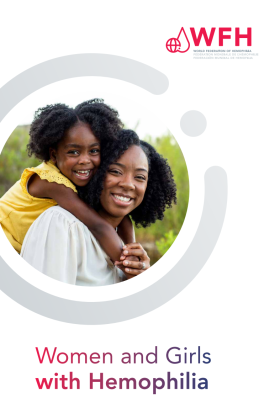My Story: Fabiola Danastorg
Participating in Hill Day on World Hemophilia Day was an unforgettable, grounding, and deeply emotional experience. As someone living with Von Willebrand Disease Type 1, I’ve spent most of my life navigating misdiagnoses, medical gaslighting, and the invisible pain of a condition many still don’t fully understand. To stand in the Capitol for the first time in my life, having the opportunity to share my story, advocate for others who couldn’t, and be heard in such an important forum with people who can influence real change, felt like reclaiming a seat at the table where women were rarely invited. I’m incredibly grateful to NBDF and its staff for creating this safe space and for all the tireless work they do on behalf of our community. I hope you all know it does not go unnoticed.
To tell you a little bit about my life with VWD and why I chose to become an advocate for this cause, my symptoms began young but worsened when I turned ten (23 years ago). My periods were so heavy, debilitating, agonizing, and painful, I truly thought for two decades that they would someday kill me. At one point, I was hospitalized with a full-body rash, high fever, and dangerously low hemoglobin. Doctors told me if I hadn't come in that night, I might not have made it to the next morning. I had to wear diapers just to avoid bleeding through my clothes. I lived with debilitating cramps, nausea, vomiting, chronic anemia, fatigue, and the kind of shame that mentally eats away at you when no one believes your pain and your struggle are real. For years, I bounced between specialists, mostly gynecologists, because my symptoms appeared only with my cycle. It took over a decade to get a proper diagnosis, and even then, I've had to fight to be seen, to be treated, and to protect not just my health, but my future.
I’ve been hospitalized, received blood transfusions, been bedbound for days on end while on my menses, and have had near-death experiences because of my bleeding that still shake me to this day. I’ve lost jobs due to absences, sat in HR meetings pleading for accommodations, and had to become an expert on FMLA and ADA just to protect my employment. Eventually, I realized I couldn’t keep contorting myself to fit a system that was never built for me, so I planned my life around a job that would. Finding a remote role wasn’t just a career move for me at that point, it was survival.
Certain medications helped, to an extent. So did choosing a contraceptive path that, while complicated and not the choice I would have liked to make, was necessary just to function and have a shot at a decent quality of life. But what truly transformed everything for me was finding my community. Becoming part of my chapter’s board, connecting with other women, showing up at different local and national events like BDC and the WGPPM Summit, and finally realizing I wasn’t alone, that was healing in a way no prescription ever could be. There were entire rooms full of women with stories like mine, and suddenly I didn’t feel so misunderstood, and that’s been a humbling journey.
Hill Day was a full-circle moment. I sat with congressional staff and incredible advocates, sharing why continued CDC funding for the Division of Blood Disorders is not just important, it’s urgent. These cuts threaten the few programs that even begin to acknowledge women like me with bleeding disorders in conversations at a national level. Without this funding, the progress we’ve only just started to make toward research, education, access to care, and equitable diagnosis could vanish. And for women like me, that means going back to silence, back to losing faith in a system that has already failed us too many times. Back to invisibility, and to a time of misconceptions and outdated thinking we’ve fought so hard to move beyond.
But I refuse to go back.
This experience strongly reminded me: we’re not rare, we’re rarely recognized. And that ends with us. We are here. Our stories matter. And we deserve to be heard, believed, and prioritized.
Before Hill Day, I didn’t fully grasp how deeply these federal decisions are rooted in impacting women like me. Sitting in those briefings, learning about the scope of these cuts from different angles, and how they threaten the few programs focused on women with bleeding disorders, shook me. As a woman, as a chapter member, and as someone living on the small island of Puerto Rico, it scared me. But it also lit a fire in me. I left feeling prouder and more grateful than ever to have had the chance to be involved, to speak up, and to carry everything I learned back to my community. This experience reminded me that even if all I can offer is my grain of sand, it matters. Because change begins when we each decide to show up and lay ours down.
About The Author
You May Also Like

Looking for more resources for women and girls with hemophilia?…
Share your voices, stories, artwork and videos.
